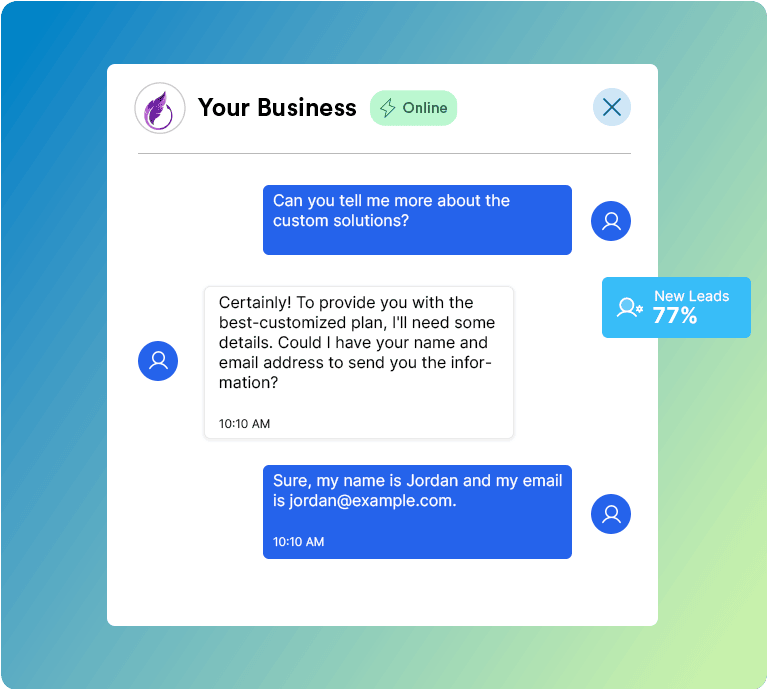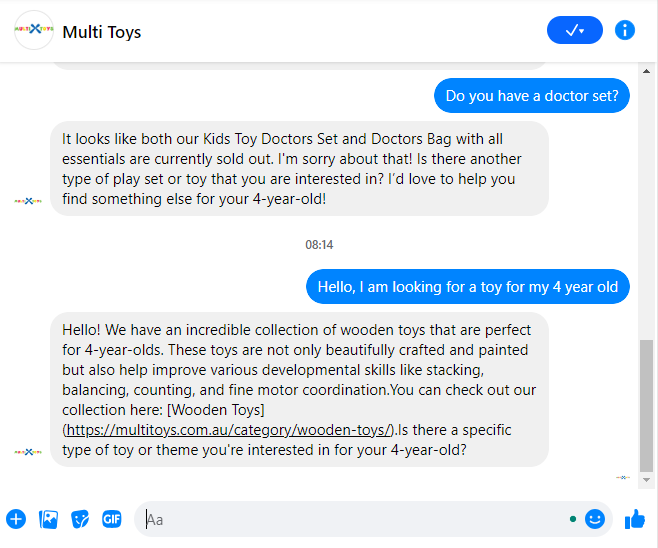In chatbot marketing, ethics aren’t just about ticking boxes, they’re the foundation for earning and keeping your audience’s trust. As chatbots become a big part of how we connect with customers, it’s vital to keep things transparent, respectful, and secure.
In this post, we’ll walk you through the key ethical principles that should guide your chatbot strategy. By following these principles, you’ll build real connections and genuinely earn your users’ trust.
Understanding Chatbot Marketing
Definition of Chatbot Marketing
Chatbot marketing is a process of utilising chatbots—automated software tools, designed to simulate human conversation—for communicating with customers in pursuit of the sale of a product or service. These bots vary from answering the most basic FAQs to guiding users through sales processes. It’s practically the instant response feature, and engaging on a personalised level makes it a quite potent tool in any marketer’s arsenal.

Significance of Ethical Practices in Chatbot Marketing
Chatbot marketing ethical practices are very important for consumer trust and credibility. Since chatbots are going to play a central role in customer engagement, it is very critical to make sure the chatbots are trained to be ethical. This prevents possible misuse and also creates a sterling image of your brand.
Ways of Being Misused
- Faking being human: Imagine a chatbot was a person, who didn’t let you realise it’s a bot. It’s like the friendly face, actually a robot—deceptive and misleading.
- Be Disrespectful of Privacy: Picture a chatbot requesting all kinds of personal information without explaining why and how relates to the information provided. That would be like someone rummaging through your personal space without your permission.
- Strong Squeeze: Some chatbots may resort to sly ways of getting an order for something or eliciting information from you. It’s a bit of a sales pitch, something that wouldn’t let you move on, even if you are no longer interested.
- Passing on Bad Information: Picture this: a chatbot gives you bad advice, especially on critical stuff like health and finances, without warning you it might not be reliable. It’s like being given the wrong directions when you are lost.
- Being Secretive: If the chatbot is not quite forthcoming with regards to what it does with your data or how it works, well. that puts chills down the back of your neck—much like talking to someone and having no idea what’s going on.

Essential Principles of Ethical Chatbot Marketing
Transparency in Chatbot Interactions
One of the most important ethical rules in chatbot marketing is clarity, like how it is applied on Facebook Chatbots. Users must always know if they are interacting with a chatbot, not a human. This should be clear and straightforward, without any exceptions.
Only then can confusion be avoided, and trust retained. For instance, at least a welcome message, “Hello, I am ChatBot here to help with your queries,” will put the users on the right track and set expectations, therefore retaining honesty.
Protection of User’s Privacy
Another critical facet of ethical chatbot marketing has to do with user privacy. Most of the time, chatbots collect and store personal information to provide tailor-made responses. Thus, handling this data becomes very critical.
Build robust security measures to protect user information and be very upfront with the data usage policy. Always ask for explicit consent before collecting any sort of personal data and allow users the option of opting out in case they so wish.
Ethical Communication Strategies
Ethical chatbot marketing developers must, therefore, imply customer-respectful communication, avoiding at all costs manipulative or deceptive tricks and hard-sell pitches. Above all, focus on disseminating relevant information and assisting users. Tailor your chatbot’s replies helpfully and compassionately so that every reply shows regard for ethical behaviour on the part of your brand.
Examples of Chatbot Marketing That Apply Ethical Practices
Applied Cases of Ethical Chatbot Marketing
Several brands set benchmarks when it came to ethical chatbot marketing. For instance, retail company H&M uses its chatbot to make fashion recommendations to customers but makes sure that all data that will be collected and how it will be used are clearly stated to customers.
Health provider Ada Health gives medical advice through its bot but disclaims clearly that the recommendations made by the bot are not for professional medical consultation.
Lessons Learned from These Examples
Examples of such lessons learned are transparent communication that builds trust with the user, ethically handling their data to make sure not to make the situation a problem for privacy, and respectful, non-manipulative, and helpful tones in interactions that make sure positivity. Such practices can be used to increase any brand’s chatbot marketing strategy.

How Ethical Chatbot Marketing Can Build Trust
Build Trust Through User Experience
Positive user experience forms the bedrock of ethical chatbot marketing. Keep the user in mind at all times, and make sure that with every action, the chatbot has the pillars: user-friendly, responsive, and effective. Constant testing of interactions by your chatbot and refinement in light of user expectations go a long way to resolving most of the issues. A respectful and effective chatbot in delivering value tends to build lasting trust.
Improvement Continually Builds Trust
Ethical chatbot marketing will never be something you do once. It’s something continuously monitored and improved upon. Be watchful about what the chatbot is doing, ensuring that it stays within the parameters of your ethical standards.
Take note of the user feedback to gain a better understanding of how to improve and adjust accordingly. Showing a commitment to continuous improvement means demonstrating serious value in being a trustworthy and reliable service.
Conclusion
In other words, productive chatbot marketing has to rest on ethical practices. Put differently, you will build an intense, based-on-trust relationship with your audience via open and transparent operations, respect for privacy, and respect in communication. If need be, chatbot strategies are measured against the ethical yardstick. It won’t only improve the trust of your users, but also strengthen brand trust in the competitive world of chatbot marketing.
Curious if chatbots could help your business? Get real-life examples and insights in our guide on chatbot marketing!


